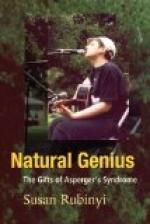“I know the ways of honor, what maintains
The quick returns of courtesy and wit:
In vies of favor whether party gains,
When glory swells the heart and mouldeth it
To all expressions both of hand and eye,
Which on the world a true-love knot may tie,
And bear the bundle, wheresoe’er it goes:
How many drams of spirits there must be
To sell my life unto my friends or foes:
Yet I love thee.
“I know the ways of pleasure, the sweet strains,
The lullings and the relishes of it;
The propositions of hot blood and brains;
What mirth and music mean; what love and wit
Have done these twenty hundred years, and more;
I know the projects of unbridled store:
My stuff is flesh, not grass; my senses live,
And grumble oft, that they have more in me
Than he that curbs them, being but one to five:
Yet I love thee.
“I know all these, and have them in my hand;
Therefore not sealed, but with open eyes
I fly to thee, and fully understand
Both the main sale, and the commodities;
And at what rate and price I have thy love;
With all the circumstances that may move:
Yet through the labyrinths, not my grovelling wit,
But thy silk-twist let down from heav’n to me,
Did both conduct and teach me, how, by it,
To climb to thee.”
A splendid retrospect this of a short life: and with what accurate knowledge of art, science, policy, literature, of powers of body and mind. Herbert’s poems are full of this sterling sense and philosophical reflection—the mintage of a master mind.
Addison’s version of the twenty-third Psalm has entered into every household and penetrated every heart by its sweetness and pathos. There is equal gentleness and sincerity in Herbert’s:
“The God of love my
shepherd is,
And he that doth
me feed.
While he is mine, and I am
his,
What can I want
or need?
“He leads me to the
tender grass,
Where I both feed
and rest;
Then to the streams that gently
pass:
In both I have
the best.
“Or if I stray, he doth
convert,
And bring my mind
in frame
And all this not for my desert,
But for his holy
name.
“Yea, in death’s
shady, black abode
Well may I walk,
not fear:
For thou art with me, and
thy rod
To guide, thy
staff to bear.
“Nay, thou dost make
me sit and dine,
E’en in
my en’mies’ sight;
My head with oil, my cup with
wine,
Runs over day
and night.
“Surely thy sweet and
wond’rous love
Shall measure
all my days:
And as it never shall remove,
So neither shall
my praise.”
We might linger long with Herbert, gathering the fruits of wisdom and piety from the abundant orchard of his poems, where many a fruit “hangs amiable;” but we must listen to his brethren.




